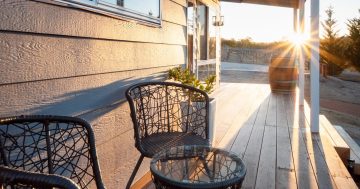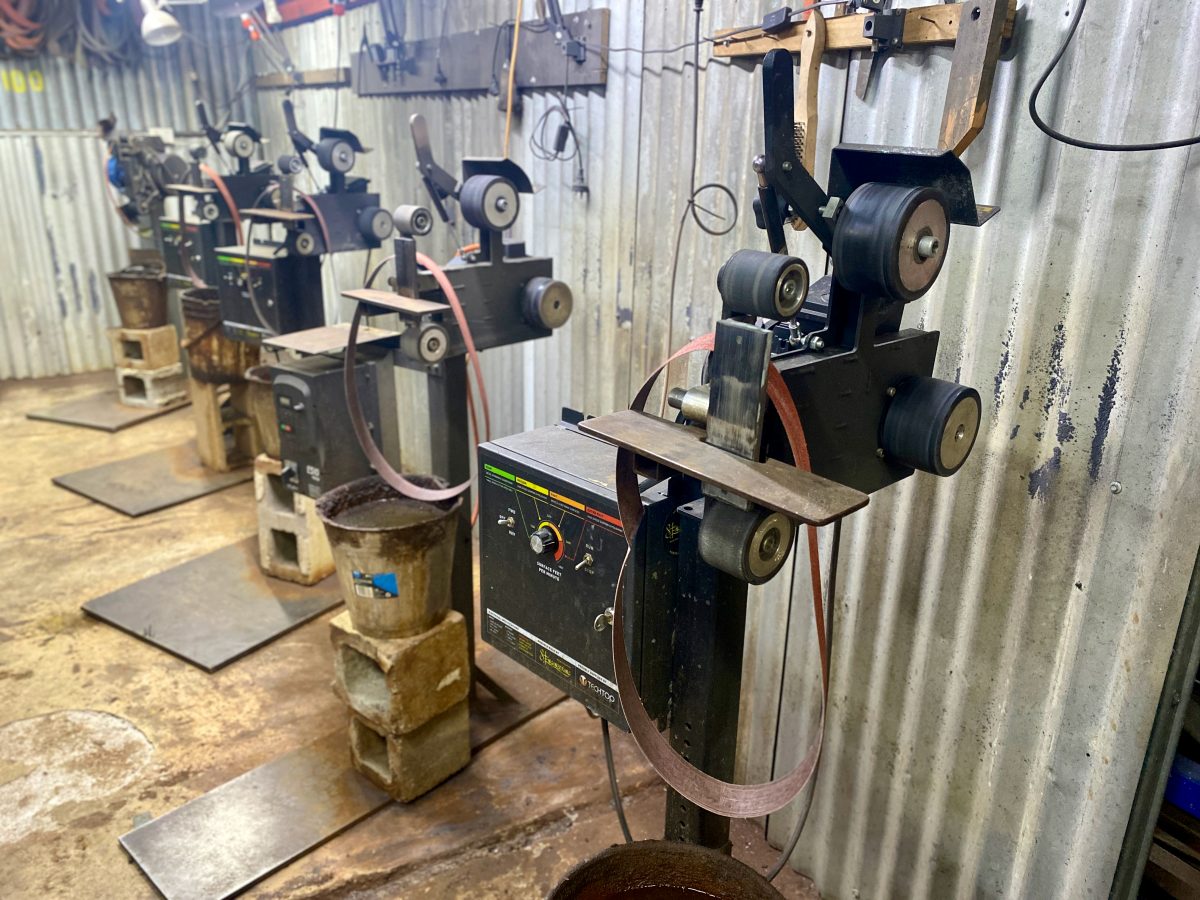
Participants in Tharwa Valley Forge courses do the hands-on work themselves, although there’s always someone to help you fix a mistake. Photo: Lucy Ridge.
Tharwa Valley Forge has been running popular knife-making courses since 2003. They often sell out months in advance, and the bladesmiths are internationally well-regarded for their skills.
I recently participated in the Stainless Steel Kitchen Knives course and, with four other participants, transformed two blank pieces of stainless steel into razor-sharp, handmade kitchen knives.
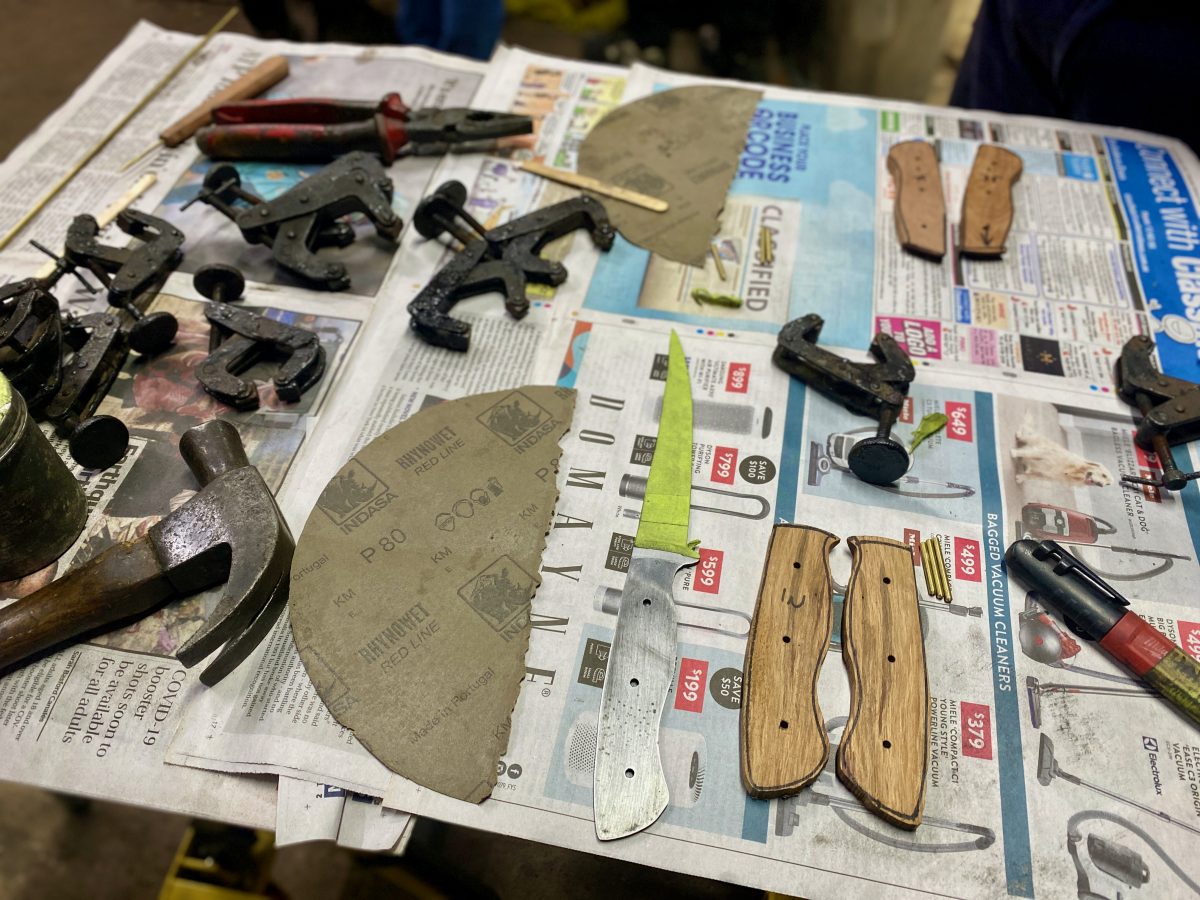
Courses at the forge range from ‘one day, one knife’ to week-long foundational courses for those wanting more in-depth knowledge. Photo: Lucy Ridge.
The course began on Friday night with an introduction and safety briefing. Our facilitator, Halcyon, gave us a hands-on lesson in using the grinders by helping us turn some scrap stainless steel into a small bonus knife.
As someone who rarely uses any kind of power tool, I was initially daunted, but Halcyon’s upbeat teaching-style gave me the confidence to give it a go.
We chose the template for our kitchen knives along with the wooden blocks that would form the handle. Most participants picked a large chef’s knife and a smaller utility blade, but I was keen to make a boning knife and an oyster shucker.
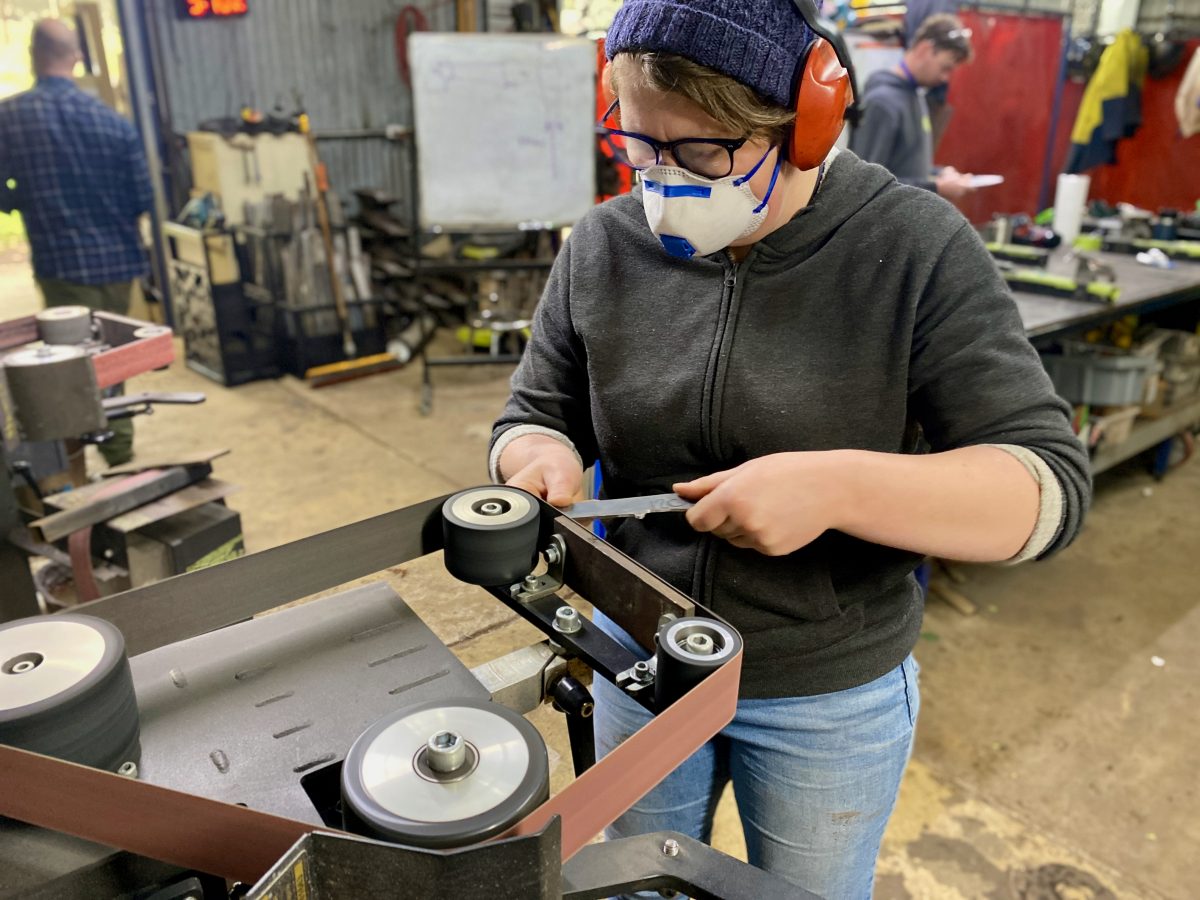
Many of the courses are suitable for total beginners. Photo: Lucy Ridge.
Saturday morning involved shaping our knives from blocks of steel into two ‘almost knives’, using grinders and hand tools to create the form and shape. This involved various techniques on the grinders and a lot of sparks, noise and dust, so safety gear was always firmly on.
Putting a ‘bevel’ on the face of the knife was something we all found challenging. A delicate balance of pressure and angles is required, and a few of us made mistakes. But Halcyon fixed them up and assured us that it’s very rare for participants to mess up a knife completely.
We could hear Halcyon working inside while we ate our lunch, and everyone’s knives looked a little more refined when we returned from the break.
Next, we heat-treated the steel in a gas forge. This process required patience as we waited for the knives to heat at precisely the right temperature and time, but Halcyon used the time to answer our questions. She said there are more men than women in knife-making circles, but it’s a really friendly community. There’s no formal apprenticeship or qualification for bladesmithing in Australia, so craftspeople have developed a culture of skill sharing to keep the craft alive.
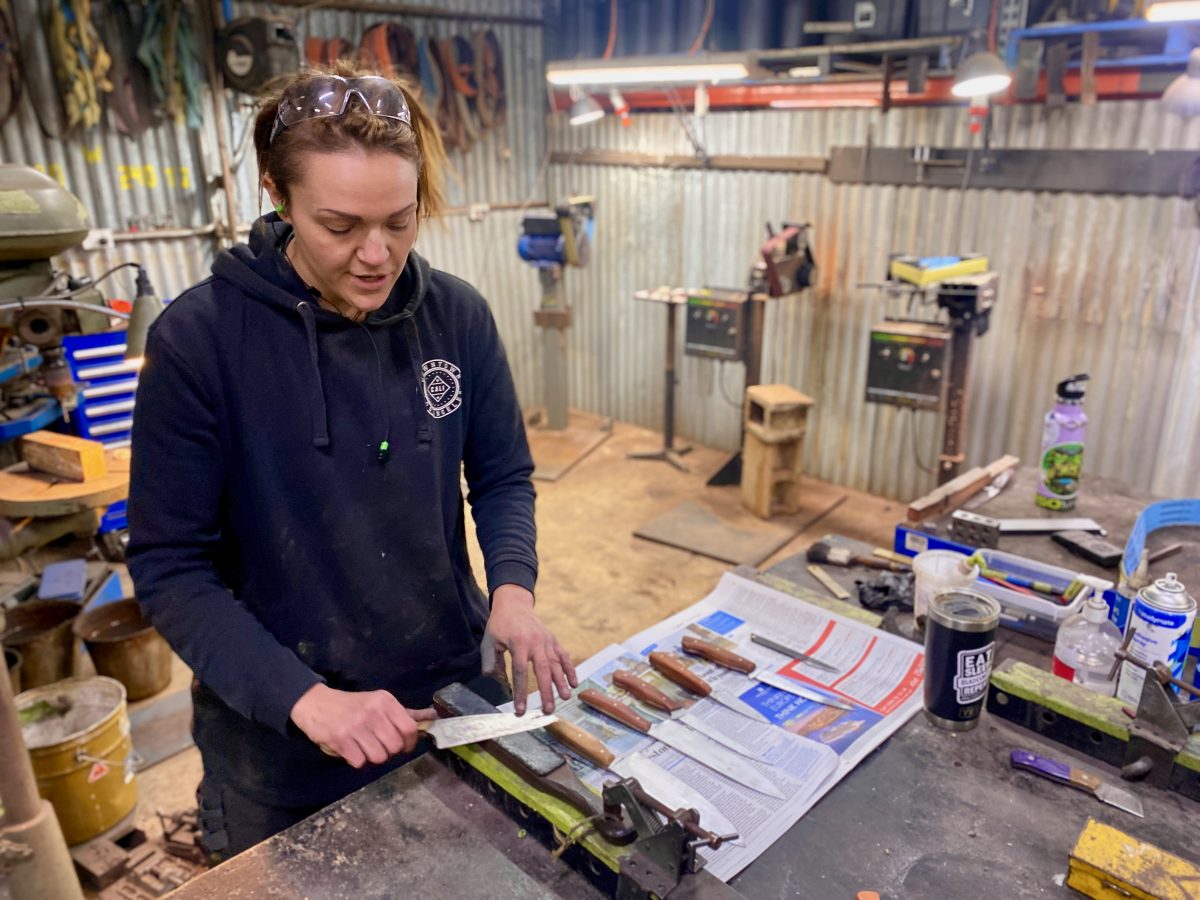
Halcyon helped us sharpen our new knives and explained how to maintain them. Photo: Lucy Ridge.
When the knives were properly hot, we dunked them straight into a vat of oil – with some dramatic fire and sizzle – before quickly unhooking the wires and pressing them under a thick aluminium block to straighten any wonky edges.
Sunday involved a lot of hand sanding. If you’ve ever baulked at the cost of a handmade knife, this course will set you straight about how much time, energy and elbow grease goes into the process. Despite the chilly morning, we had all ditched our jumpers as we worked up a sweat removing every last scratch from the face of each blade.
Once the wood blocks were attached, we transformed them from rough rectangles to smooth, curved handles. However, we were warned to leave the ‘butt’ of the knife well alone to avoid the rookie error of turning the handle into an unfortunate phallic shape!
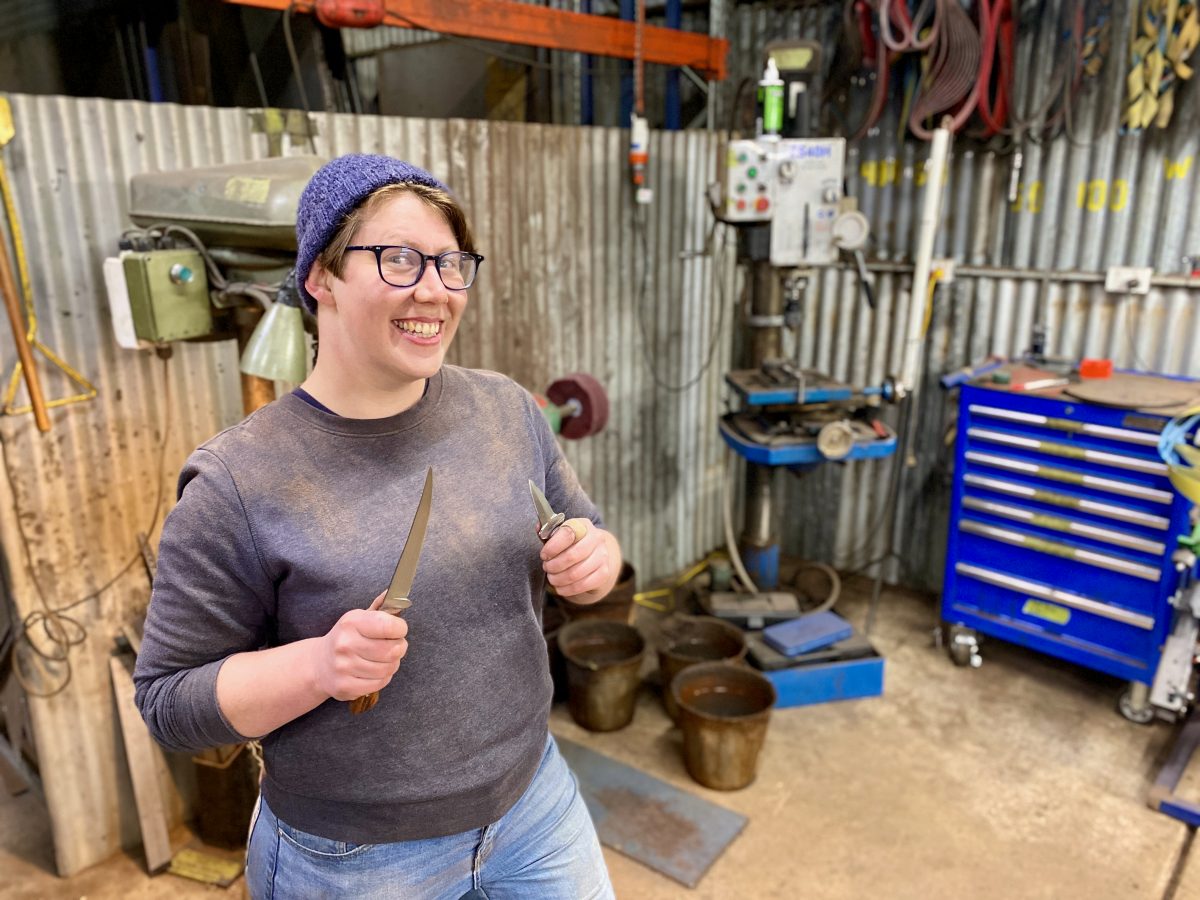
After two-and-a-half days of hard work, you get to take home a couple of wickedly sharp knives! Photo: Lucy Ridge.
The end result is two absolutely gorgeous knives. The quality of the end product – plus the fantastic experience of hands-on learning – makes this course extremely good value, despite the high price tag.
A bonus of this course is that, besides taking home two beautiful knives (plus our bonus practice blade), we also got some expert advice on maintaining an edge and a sharpening stone or steel to take home.
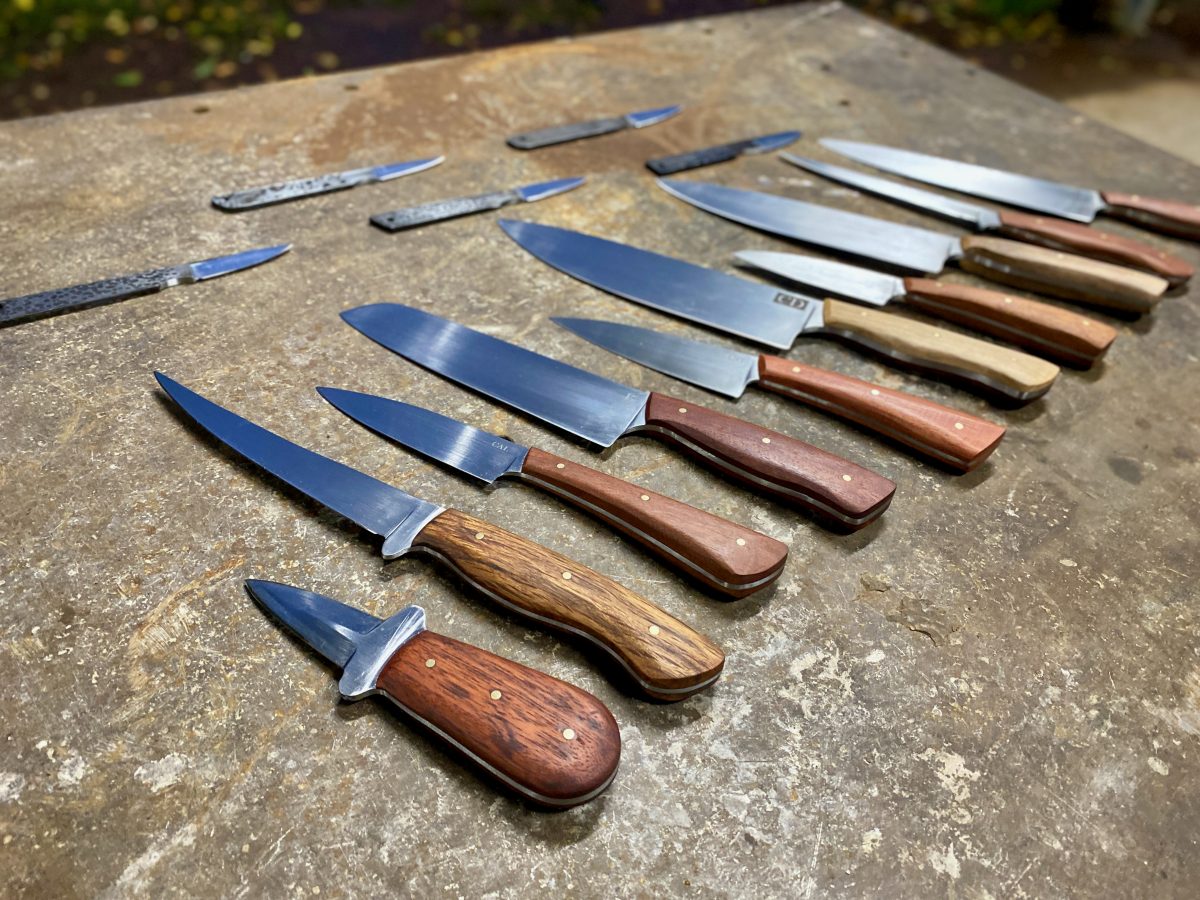
At the end of the course, we all left with two beautiful kitchen knives each, plus a bonus utility blade. Photo: Lucy Ridge.
Tharwa Valley Forge also teaches courses in bow making, leatherwork, sculpture and blacksmithing, as well as a variety of knife-making courses that run from a single day to a week long.
Tharwa Valley Forge is located at 11 Naas Road, Tharwa. Learn more about their courses, services, and products on their website, or follow them on Facebook, Instagram or YouTube for more inspiration.












